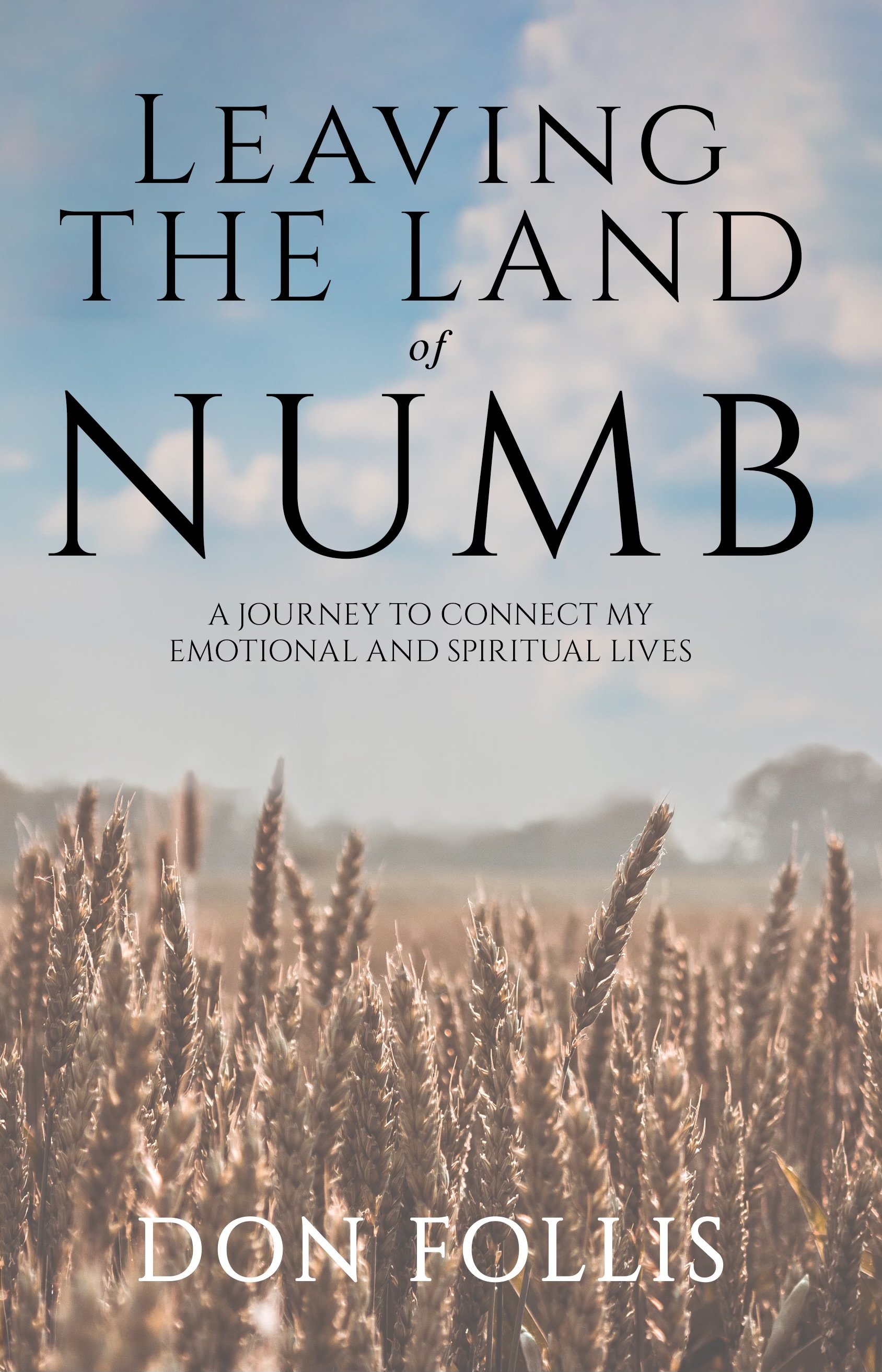Leaving the Land of the Numb
Guest Writer: Don Follis
In my memoir Leaving The Land of Numb—A Journey To Connect My Emotional And Spiritual Lives (Mountain Ash Press, 2023), I tell the story of how, at age 14, my first boss told me I was the only person who ever worked for him that he couldn’t teach how to do the job. To make matters worse, he was a man in our church and friends with my Dad and Mom. Neither of them ever intervened to help me make sense of what happened. For the rest of my growing-up years, I mostly avoided the man.
Years later, following seminary, I spoke at my home church one Sunday. My old boss was there, and he shook my hand afterward. “Congratulations,” he said. “I never thought you could do it.”
I went on to serve 25 years as a campus pastor at the University of Illinois and now have served 46 years in the ministry. One Sunday, as a young campus pastor, I spoke at a rural church an hour from my home. Returning home, I started smiling from ear to ear. It suddenly occurred to me that I had forgiven my first boss. As I drove through the countryside, I thought about my hurt from years ago. I began empathizing with the old fellow, whose life had been hard. He had lost his wife, and my parents told me he was in poor health. He needed my love way more than my derision.
Though I thought I had forgiven him, alone in my car that day, I felt it as never before and said, “I forgive you, old boy, and wish you all the best. May the peace of Jesus be with you.” I told the Lord I wanted to be a man committed to forgiveness for the long term, come what may in my life.
Over decades of ministry, I have seen how forgiveness challenges seeking revenge and the need for reciprocity. Forgiveness is the one force in the world that invites us to approach people with love, giving us a desire for their well-being. That means giving up our natural inclination to protect ourselves and seeking justice on our terms. As we have received forgiveness from God, we extend the same forgiveness to others, even when it’s difficult or painful.
Don Follis
-----
Don’s memoir, available on Amazon, tells how he learned to feel his emotions, both painful and joyous. His journey took him through a teenage marriage and divorce, rejection by the church because of that divorce, the death of his son, and a new vision of the richness of the emotional life of Jesus.
Joanna https://www.joannaseibert.com/




